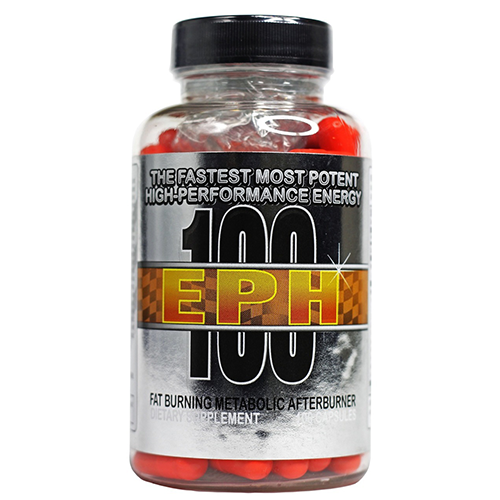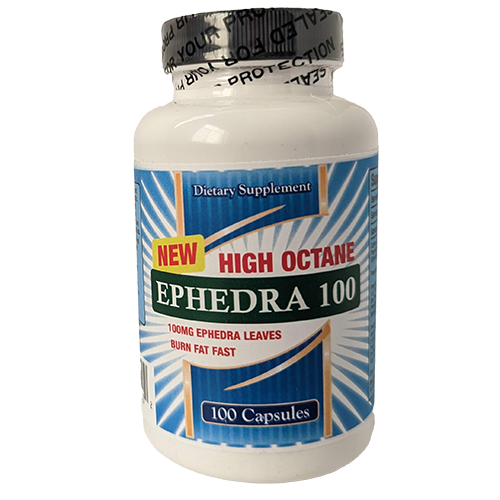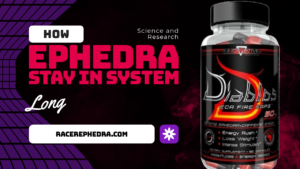Weight loss is a common goal for many individuals seeking to improve their health and appearance. Over the years, numerous products and strategies have emerged to aid in this pursuit. One approach that has garnered significant attention is the use of Ephedra and Caffeine containing products for weight loss. These products, often marketed as dietary supplements, claim to enhance thermogenesis and increase metabolism, leading to greater fat burning and weight reduction.
In this comprehensive review, we will delve into the scientific literature surrounding Ephedra and Caffeine containing products for weight loss. We will examine the safety, efficacy, and mechanisms of action of these products, drawing insights from several key studies in the field. By understanding the potential benefits and risks associated with these products, individuals can make informed decisions about incorporating them into their weight loss journey.

The Role of Ephedra and Caffeine in Weight Loss
Ephedra, also known as Ma Huang, is a naturally occurring substance derived from the Ephedra sinica plant. It has a long history of use in traditional Chinese medicine for its stimulant and thermogenic properties. Caffeine, on the other hand, is a widely consumed psychoactive substance found in coffee, tea, and various other beverages and foods. Both Ephedra and Caffeine have been studied for their potential effects on weight loss.
Mechanisms of Action
Ephedra and Caffeine exert their effects on weight loss through various mechanisms. Ephedra primarily acts as a sympathomimetic agent, stimulating the release of norepinephrine and activating adrenergic receptors. This leads to an increase in thermogenesis, or heat production, in the body. Caffeine, on the other hand, acts as a central nervous system stimulant and adenosine receptor antagonist, enhancing alertness and increasing energy expenditure.
Efficacy of Ephedra and Caffeine for Weight Loss
Several studies have examined the efficacy of Ephedra and Caffeine containing products for weight loss. In a randomized, double-blind placebo-controlled trial, researchers found that participants who received the herbal supplement experienced significant reductions in body weight and body fat compared to those who received a placebo. Additionally, the herbal treatment was associated with improvements in blood lipids, including a decrease in LDL-cholesterol and an increase in HDL-cholesterol.
Buying Guides

Review of the top ephedra products and why Racer Ephedra is the best online store to buy. Best ephedra diet pills, pre-workout, and energy shots at the lowest prices online.

Everything you need to know on what are the best fat burning ingredients. The buying guide reviews the latest cutting-edge research on the top products.
Thermogenesis Ephedrine and Caffeine
Thermogenesis is a process in which our body generates heat by burning calories. It has gained significant attention in the field of weight loss and metabolism. Ephedrine and caffeine are two substances that have been widely studied for their thermogenic properties.
Now, let’s address the question at hand – whether or not aspirin further potentiates the greater post-prandial thermogenesis induced by ephedrine with caffeine. Recent studies have shed some light on this topic.
One study found that aspirin does not further enhance the acute thermic effect of ephedrine and caffeine when consumed with a meal. However, it is important to note that this study only measured the acute thermogenic response and did not evaluate the full thermogenic effect.
To draw a concrete conclusion, longer duration studies are needed to confirm these preliminary findings. This is crucial because the impact of aspirin on thermogenesis may vary based on various factors such as dosage, frequency of consumption, and individual differences.
Increase in Metabolic Rate
Interestingly, regardless of the addition of aspirin, all groups in the study experienced a significant increase in metabolic rate following the consumption of a meal with ephedrine and caffeine compared to a meal without these substances. This suggests that the combination of ephedrine and caffeine itself has a notable thermogenic effect.
Furthermore, it is worth mentioning that the obese group in the study had a significantly greater absolute increase in metabolic rate when they consumed a meal with ephedrine, caffeine, and aspirin compared to just a meal alone. This finding suggests that the thermogenic response may be more pronounced in individuals with obesity.
Additionally, while aspirin does not seem to further potentiate the acute thermogenic effect of ephedrine and caffeine, more comprehensive and longer duration studies are required to fully understand the impact of aspirin on thermogenesis. It is also essential to consider individual factors and consult with healthcare professionals before incorporating any supplements or medications into your routine for weight loss or metabolic purposes.
Remember, it’s always best to prioritize a balanced diet, regular physical activity, and overall healthy lifestyle habits when aiming for sustainable weight loss and optimal metabolism.
Herbal Products for Weight Loss
Herbal products for weight loss have gained a lot of popularity in recent years, as people are looking for natural and effective ways to shed those extra pounds. One herbal supplement that has been studied for its potential weight loss benefits is a mixture of Ma Huang and Guarana, along with other ingredients.
In a study conducted on overweight individuals, this herbal supplement showed promising results in terms of both safety and efficacy for short-term weight loss. The study involved a total of sixty-seven subjects, who were randomly assigned to either the placebo group or the group receiving the active Ma Huang/Guarana supplement. It is worth noting that twenty-four subjects from each group completed the study.
The results of the study revealed that the group receiving the active treatment experienced a significantly greater loss of weight and fat compared to the placebo group. On average, the participants in the active treatment group lost around 4.0 kilograms of weight and 2.1% of body fat over the course of eight weeks. These findings indicate that the herbal supplement containing Ma Huang and Guarana can be effective in promoting short-term weight and fat loss.
Herbal Supplement and Results
However, it is important to note that the safety of long-term use of this herbal supplement still requires further investigation. While the short-term results are promising, more research is needed to determine the potential risks and benefits of using this product over an extended period of time.
When considering any herbal product for weight loss, it is crucial to approach it with caution and consult with a healthcare professional. They can provide personalized advice based on your individual health condition and help you make an informed decision about incorporating herbal supplements into your weight loss journey.
Comparatively, the herbal mixture of Ma Huang and Guarana, along with other ingredients, has shown promising results in promoting short-term weight and fat loss in overweight individuals. However, more research is needed to fully understand its long-term safety and efficacy. If you are considering using herbal products for weight loss, consult with a healthcare professional to ensure it is safe and suitable for you.
Ephedra and Caffeine Products

One of the most complete fat burners with Green Stinger. The extreme formula contains 27mg ephedra extract and 200mg caffeine.

ECA Xtreme the original ephedra, caffeine, and aspirin stack is back. A new legal formula that achieves the same great results.
Stimulation of Thermogenesis
Thermogenesis, the process of generating heat in our bodies, plays a crucial role in maintaining a balanced internal environment. Over the past 15 years, researchers have discovered that the sympathoadrenal system, which is responsible for our fight-or-flight response, also plays a pivotal role in regulating our fat stores. This understanding has led to the development of innovative strategies for thermogenic stimulation in obesity therapy.
In order to effectively and safely stimulate thermogenesis, scientists have focused on two main areas of research. Firstly, they have been working on developing novel beta-agonists that are selective for thermogenesis. Beta-agonists are drugs that activate beta-adrenergic receptors, which are found in various tissues throughout our bodies. By specifically targeting these receptors involved in thermogenesis, researchers hope to find new drugs that can enhance the process.
Secondly, researchers have been evaluating drugs that are already in clinical use for other purposes, such as ephedrine. Ephedrine is a drug commonly used as a bronchodilator to treat asthma and as a nasal decongestant. However, it has also been found to potentially increase the release of catecholamines, which are hormones like adrenaline and noradrenaline that play a role in our body’s stress response. By increasing the levels of catecholamines, it is hypothesized that ephedrine could enhance thermogenesis.
Obesity and Safe Stimulants
The search for effective and safe sympathetic stimulants is crucial in the field of obesity therapy. Obesity is a global epidemic that affects millions of people worldwide, leading to various health complications such as cardiovascular diseases and diabetes. By understanding and manipulating the sympathoadrenal system’s role in regulating fat stores and thermogenesis, researchers hope to develop new treatment options for obesity.
It’s important to note that while these strategies show promise, further research is needed to fully understand their effectiveness and safety. The development of targeted beta-agonists and the evaluation of drugs like ephedrine require rigorous testing and evaluation to ensure their suitability for clinical use.
Consequently, the stimulation of thermogenesis has emerged as a significant focus of research in the field of obesity therapy. The sympathoadrenal system, which is responsible for our body’s stress response, has been found to play a crucial role in regulating fat stores. Researchers are actively exploring new beta-agonists and evaluating existing drugs like ephedrine to enhance thermogenesis and develop innovative treatment options for obesity.
Adenosine and Prostaglandins
Adenosine and prostaglandins play crucial roles in regulating the thermogenic effects of sympathomimetics, such as ephedrine, at therapeutic doses. These effects can be dampened by negative feedback mechanisms that operate both extracellularly and intracellularly.
Let’s start by understanding what adenosine and prostaglandins are and how they interact with sympathomimetics. Adenosine is a naturally occurring compound that acts as a signaling molecule in various physiological processes. It plays a role in regulating blood flow, neurotransmission, and inflammation. Prostaglandins are lipid compounds that also act as signaling molecules and are involved in inflammation, pain signaling, and regulating various physiological processes.
When it comes to the thermogenic effects of sympathomimetics, adenosine and prostaglandins can modulate these effects through negative feedback mechanisms. These mechanisms help maintain homeostasis by counteracting excessive sympathetic stimulation.
One way adenosine and prostaglandins exert their influence is through extracellular modulation. Adenosine, for example, can bind to specific receptors on the surface of cells, activating signaling pathways that ultimately lead to a decrease in sympathetic activity. Prostaglandins can also have similar effects by modulating the release of neurotransmitters involved in sympathetic signaling.
Enhance Sympathetic Activity
Additionally, adenosine and prostaglandins can also exert their influence intracellularly. Inside the cells, cyclic adenosine monophosphate (cAMP) phosphodiesterases play a role in regulating the levels of cAMP. cAMP is an important secondary messenger involved in many cellular processes, including sympathetic signaling. By inhibiting cAMP phosphodiesterases, adenosine and prostaglandins can increase cAMP levels and enhance sympathetic activity.
The interplay between adenosine, prostaglandins, and sympathomimetics has been studied extensively in both humans and animals. Studies have shown that drugs like methylxanthines (e.g., caffeine) and aspirin, which interfere with the actions of adenosine and prostaglandins, can potentiate the thermogenic effects of sympathomimetics like ephedrine. This suggests that blocking or reducing the negative feedback mechanisms mediated by adenosine and prostaglandins can enhance the thermogenic response to sympathomimetics.
Correspondingly, the thermogenic effects of sympathomimetics can be influenced by negative feedback mechanisms mediated by adenosine and prostaglandins. These mechanisms operate both extracellularly and intracellularly to regulate sympathetic activity. Future research aimed at understanding the specific types and interactions of these modulators could provide valuable insights into optimizing the therapeutic use of sympathomimetics for conditions such as obesity or metabolic disorders.
Ephedra and Caffeine Safety/ Efficacy
Ephedra and caffeine have been widely used as weight loss supplements, but many people have concerns about their safety and effectiveness. In this answer, I will provide you with detailed information regarding the long-term safety and efficacy of an herbal supplement containing Ma Huang and Kola nut, which are known sources of ephedrine alkaloids and caffeine, respectively.
A six-month randomized, double-blind, placebo-controlled trial was conducted to evaluate the effects of this herbal ephedra/caffeine supplement on weight loss. Participants in the trial were assigned to either the herbal supplement group or the placebo group.
The results of this trial were quite promising. The group that took the herbal ephedra/caffeine supplement experienced significant reductions in body weight and body fat compared to the placebo group. By using the last observation carried forward analysis, it was found that the herbal treatment group had an average weight loss of 5.3±5.0 kg, while the placebo group only lost 2.6±3.2 kg (P0.001). Similarly, the herbal treatment group lost 4.3±3.3 kg of body fat, whereas the placebo group lost 2.7±2.8 kg (P=0.020).
Moreover, the herbal ephedra/caffeine supplement was also found to have a positive impact on blood lipids. It was observed that LDL-cholesterol levels decreased by 8±20 mg/dL in the herbal treatment group compared to the placebo group.
One of the most important aspects of this trial was the evaluation of safety. Fortunately, no significant adverse events were reported among the participants who took the herbal ephedra/caffeine supplement.
Effective for Weight Loss
These findings suggest that this particular combination of ephedrine alkaloids and caffeine can be effective for weight loss and improving blood lipids in the long term. However, it is crucial to note that individual results may vary, and it is always recommended to consult with a healthcare professional before starting any new weight loss regimen or taking dietary supplements.
It is also essential to be aware that ephedra has been banned in several countries due to safety concerns. However, this trial specifically used a regulated dosage of ephedrine alkaloids within safe limits.
Emphatically, based on the results of this six-month trial, the herbal ephedra/caffeine supplement demonstrated efficacy in promoting weight loss and improving blood lipids without significant adverse events. Nonetheless, it is vital to exercise caution and seek professional advice before incorporating any new supplements into your weight loss journey.
Safety Considerations
While Ephedra and Caffeine containing products have shown promise for weight loss, it is essential to consider their safety profile. Adverse effects have been reported with the use of these products, particularly at higher doses or when combined with other substances. Common side effects include dry mouth, heartburn, insomnia, and increased heart rate. However, more severe adverse events, such as cardiovascular complications, have also been reported in some cases.
Effects of Caffeine
Caffeine, the beloved stimulant found in coffee, tea, and various other beverages, has long been known to have a significant impact on our bodies. Ingesting caffeine has been shown to trigger a cascade of physiological responses, including an increase in circulating epinephrine (Epi) and norepinephrine (NE), elevated levels of free fatty acids (FFAs), and alterations in heart rate, blood pressure (BP), and ventilation in humans.
The precise mechanism by which caffeine produces these effects is still a subject of ongoing research. One hypothesis suggests that caffeine acts through direct stimulation of specific tissues via adenosine receptors. Another possibility is that these physiological responses are secondary to the increase in epinephrine levels caused by caffeine ingestion. Let’s dive deeper into these fascinating effects.
In a recent experiment conducted on six tetraplegics with spinal cord lesions ranging from C4 to C6, researchers sought to investigate the effects of a high dose of caffeine on individuals with impaired epinephrine release. The participants were tested at rest for a duration of three hours, during which they ingested 6 mg/kg of caffeine in capsule form.
The results of this study shed light on the intricate relationship between caffeine and our physiological responses. The researchers observed an increase in circulating epinephrine and norepinephrine levels following caffeine ingestion. Epinephrine, also known as adrenaline, is a hormone that plays a crucial role in our fight-or-flight response. It increases heart rate, constricts blood vessels, and mobilizes energy sources, such as free fatty acids.
In addition to the elevation of epinephrine and norepinephrine, the experiment also revealed an increase in free fatty acids. This finding suggests that caffeine stimulates lipolysis, the process of breaking down stored fat into free fatty acids, thus providing an additional energy source for the body.
Increased Sympathetic Nervous System
Moreover, caffeine was found to have an impact on heart rate, blood pressure, and ventilation. These changes can be attributed to the combined effects of increased epinephrine levels and sympathetic nervous system activation. The sympathetic nervous system is responsible for regulating our fight-or-flight response and can cause an increase in heart rate and blood pressure when activated.
It is worth noting that these findings are specific to individuals with impaired epinephrine release due to spinal cord lesions. Further research is needed to determine whether similar effects occur in individuals with normal epinephrine release.
Especially, the ingestion of caffeine has profound effects on our bodies. It increases circulating epinephrine and norepinephrine levels, elevates free fatty acids, and alters heart rate, blood pressure, and ventilation. While the exact mechanism of action is still under investigation, it is clear that caffeine plays a significant role in stimulating various physiological responses. Whether these effects are a result of direct stimulation via adenosine receptors or secondary to increased epinephrine levels remains a topic for further exploration.
Remember, moderation is key when it comes to caffeine consumption. While it can provide a much-needed energy boost and enhance cognitive function, excessive intake may lead to adverse effects such as jitteriness, insomnia, and increased heart rate. As always, it’s essential to listen to your body and make informed choices regarding your caffeine consumption.
Thermogenic Antiobesity Effects
Thermogenic antiobesity effects refer to the ability of certain substances, such as caffeine, theophylline, and theobromine, to increase the body’s metabolic rate and promote weight loss. These substances are commonly found in dietary sources like coffee, tea, and chocolate.
Current research suggests that the therapeutic effects of these dietary methylxanthines are mainly due to their actions as antagonists of adenosine receptors. Adenosine is a neurotransmitter that plays a role in regulating various physiological processes, including sleep-wake cycles and energy metabolism. By blocking adenosine receptors, methylxanthines can increase the release of neurotransmitters like dopamine and norepinephrine, leading to increased energy expenditure and fat oxidation.
In addition to their adenosine receptor antagonism, methylxanthines may exert their thermogenic effects through other mechanisms. For instance, they have been shown to increase intracellular calcium levels, which can activate enzymes involved in energy metabolism. They can also inhibit the activity of phosphodiesterase enzymes, which regulate the breakdown of cyclic adenosine monophosphate (cAMP), a molecule involved in cellular signaling pathways related to metabolism. By inhibiting PDE activity, methylxanthines can prolong the action of cAMP and enhance its effects on energy expenditure.
Methylxanthines and Thermogenesis
It is worth noting that some of these other modes of action are typically associated with higher doses of methylxanthines, closer to toxic levels. However, recent studies have provided evidence that even at concentrations compatible with therapeutic doses, methylxanthines can increase the respiration rate of brown adipose tissue (BAT). BAT is a specialized type of fat that is involved in thermogenesis, the process of generating heat through the burning of calories. By increasing the respiration rate of BAT, methylxanthines can enhance thermogenesis and potentially contribute to weight loss.
While the thermogenic antiobesity effects of dietary methylxanthines are supported by scientific evidence, it is important to note that their efficacy may vary among individuals. Factors such as genetics, lifestyle, and overall diet can influence how individuals respond to these substances. Furthermore, it is crucial to consume methylxanthines in moderation as excessive intake can lead to adverse effects such as increased heart rate, anxiety, and sleep disturbances.
Explicitly, dietary methylxanthines like caffeine, theophylline, and theobromine have been found to possess thermogenic antiobesity effects. Their actions as adenosine receptor antagonists and potential involvement in other cellular mechanisms contribute to increased energy expenditure and fat oxidation. However, individual responses may vary, and it is important to consume these substances in moderation for optimal benefits while minimizing potential risks.
Regulation and Guidelines
Due to safety concerns, the use of Ephedra in dietary supplements has been heavily regulated in many countries. In the United States, for example, the Food and Drug Administration (FDA) banned the sale of dietary supplements containing Ephedra alkaloids in 2004. However, it is important to note that regulations may vary in different jurisdictions, and individuals should consult local guidelines and regulations before considering the use of Ephedra and Caffeine containing products for weight loss.
Potential Interactions and Contraindications
Individuals considering the use of Ephedra and Caffeine containing products should be aware of potential interactions and contraindications. These products may interact with certain medications, such as those used to treat cardiovascular conditions or psychiatric disorders. Additionally, individuals with certain pre-existing conditions, such as hypertension or heart disease, may be at higher risk for adverse effects and should exercise caution when using these products.
Conclusion
In conclusion, Ephedra and Caffeine containing products have been a subject of interest in the field of weight loss. While studies have shown their potential efficacy for reducing body weight and body fat, it is crucial to consider the associated safety concerns. Adverse effects, including cardiovascular complications, have been reported with the use of these products, particularly at higher doses or when combined with other substances. Therefore, individuals should exercise caution and consult with healthcare professionals before incorporating Ephedra and Caffeine containing products into their weight loss regimen.
By staying informed and making educated choices, individuals can navigate the complex landscape of weight loss products and strategies with greater confidence and safety. It is important to remember that sustainable weight loss is best achieved through a comprehensive approach that includes a balanced diet, regular physical activity, and lifestyle modifications.
References
Horton TJ, Geissler CA. Post-prandial thermogenesis with ephedrine, caffeine and aspirin in lean, pre-disposed obese and obese women. Int J Obes Relat Metab Disord. 1996 Feb;20(2):91-7. PMID: 8646257.
Boozer, C., Nasser, J., Heymsfield, S. et al. An herbal supplement containing Ma Huang-Guarana for weight loss: a randomized, double-blind trial. Int J Obes 25, 316–324 (2001). https://doi.org/10.1038/sj.ijo.0801539
Dulloo AG. Ephedrine, xanthines and prostaglandin-inhibitors: actions and interactions in the stimulation of thermogenesis. Int J Obes Relat Metab Disord. 1993 Feb;17 Suppl 1:S35-40. PMID: 8384178.
Boozer, C., Daly, P., Homel, P. et al. Herbal ephedra/caffeine for weight loss: a 6-month randomized safety and efficacy trial. Int J Obes 26, 593–604 (2002). https://doi.org/10.1038/sj.ijo.0802023
Acute effects of caffeine ingestion at rest in humans with impaired epinephrine responses
M. Van Soeren, T. Mohr, M. Kjaer, and T. E. Graham Journal of Applied Physiology 1996 80:3, 999-1005 https://doi.org/10.1152/jappl.1996.80.3.999
A.G. Dulloo, J. Seydoux, L. Girardier, Potentiation of the thermogenic antiobesity effects of ephedrine by dietary methylxanthines: Adenosine antagonism or phosphodiesterase inhibition?, Metabolism, Volume 41, Issue 11, 1992, Pages 1233-1241,
ISSN 0026-0495, https://doi.org/10.1016/0026-0495(92)90015-3





